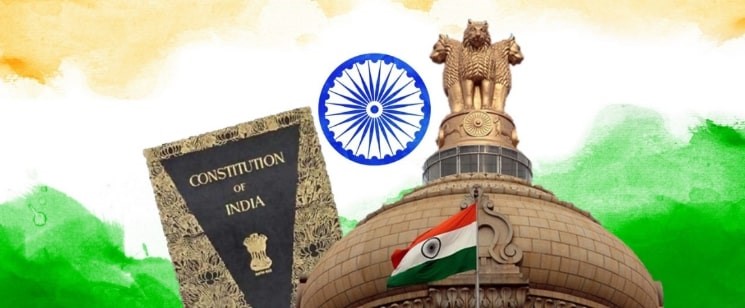Description

Disclaimer: Copyright infringement not intended.
Context
- The Kerala government has petitioned the Supreme Court against President Droupadi Murmu withholding assent to four bills passed by the state assembly.
The Issue:
- The recent controversy pertains to bills concerning amendments to laws regarding State Universities and Cooperative Societies.
- These bills, duly passed by the State Assembly, faced significant delays in approval from the Governor, with some remaining pending for as long as 7 to 24 months post their passage.
- In response, the State initiated legal action by filing a writ petition before the Supreme Court, challenging the Governor's prolonged inaction.
- Subsequently, following the Supreme Court's notice on November 20, 2023, the Governor referred the seven bills to the President.
- During a hearing on November 29, 2023, the Supreme Court criticized the Governor for the extended delay.
- Finally, on February 29, 2024, the President withheld assent from four bills and approved three others.
Governor's Powers Over Bills:
- As per Article 200 of the Constitution of India, the Governor holds the authority to assent, withhold assent, or reserve a bill for consideration by the President. Additionally, the Governor can return the bill to the Assembly with a message for reconsideration.
- Article 201 delineates the President's role, empowering them to either assent to or withhold assent from a reserved bill and direct the Governor to return it for further deliberation if deemed necessary.
Options Available with the Governor:
- The Governor's options include giving assent, requesting reconsideration of specific provisions, or reserving the bill for the President's consideration.
- Although withholding assent is a permissible option, it's rarely exercised due to its controversial nature.

Options Available to the Governor:
- When presented with a bill for consideration, the Governor possesses several avenues of action. Firstly, they may opt to grant assent, effectively endorsing the bill. Alternatively, the Governor retains the authority to return the bill to the Assembly, requesting reconsideration of either specific provisions or the bill in its entirety.
- Another option at the Governor's disposal is to reserve the bill for the President's examination. Such reservation becomes obligatory if the bill, as approved by the state legislature, jeopardizes the position of the state high court.
Additionally, the Governor may reserve the bill if it falls into certain categories:
- Contrary to constitutional provisions.
- In conflict with the Directive Principles of State Policy (DPSP).
- Adverse to the broader interests of the nation.
- Pertaining to matters of grave national importance.
- Involving compulsory property acquisition under Article 31A of the Constitution of India.
Although within the Governor's discretion, withholding assent is an uncommon action, primarily due to its potential unpopularity.
Can the Governor Withhold Assent to a Bill Using Discretionary Powers?
- While Article 200 of the Constitution of India appears to grant the Governor the authority to withhold assent, there exists debate among experts regarding whether this can be done solely on the advice of the Council of Ministers.
- Article 154 specifies that the Governor must exercise executive powers on the advice of the Council of Ministers.
President's Role in the Process:
- Upon receipt of a bill, the President can either give or withhold assent.
- Should assent be withheld, the bill is returned to the State Legislatures for reconsideration, with a lapse occurring if no action is taken within six months.
- If the bill is passed again, it must be sent back to the President, who retains discretion over granting assent.

Conclusion:
- The prolonged delay in assent by the Governor, followed by referral to the President, has raised significant questions regarding the Governor's adherence to constitutional duties.
- It is imperative that Governors promptly communicate any concerns regarding bills and adhere to the established procedures outlined in Article 200.
- Such adherence ensures a transparent and respectful legislative process, thereby upholding the Legislature's authority.
|
PRACTICE QUESTION
Q. Examine the constitutional powers of Governors in legislative processes, focusing on bill approval and the implications of withholding assent. Discuss the necessity for transparency and accountability in gubernatorial actions.
|










